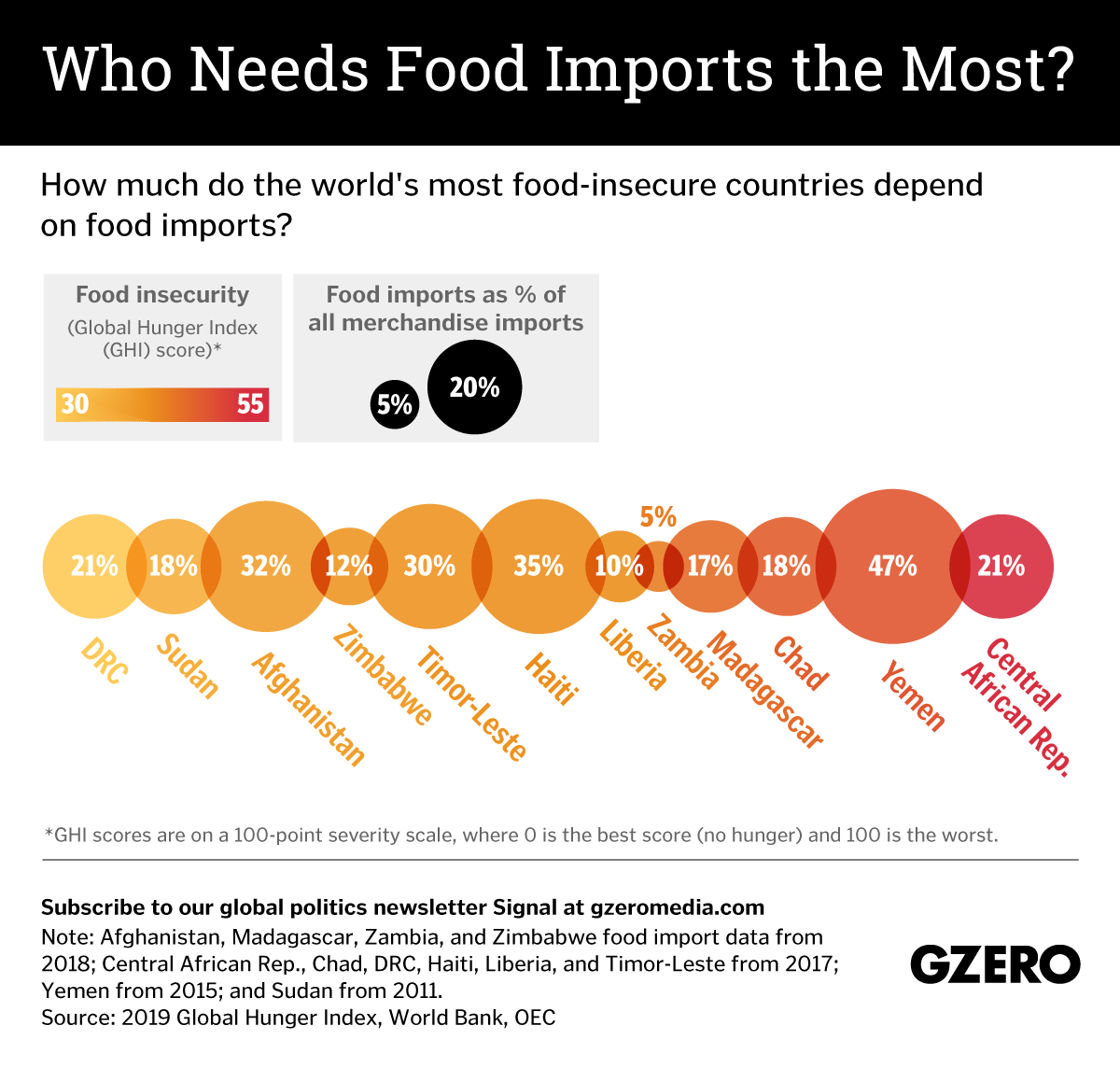April 24, 2020
The head of the UN's relief agency delivered a stark warning this week that the coronavirus pandemic could produce "famines of biblical proportions." As the virus plunges more and more people into poverty, and governments respond to the crisis with protectionist policies that restrict food exports, as many as 265 million people across 30 countries could now face starvation. Here's a look at which countries are most vulnerable to food shortages based on two variables: their reliance on food imports to feed themselves, and their ranking by the Global Hunger Index, a tool designed to measure the pervasiveness of hunger and malnutrition at global, regional, and national levels.
More For You
Tune in on Saturday, February 14th at 12pm ET/6pm CET for the live premiere of our Global Stage from the 2026 Munich Security Conference, where our panel of experts takes aim at the latest global security challenges.
Most Popular
- YouTube
In this Quick Take, Ian Bremmer weighs in on the politicization of the Olympics after comments by Team USA freestyle skier Hunter Hess sparked backlash about patriotism and national representation.
British Prime Minister Keir Starmer delivers a speech at Horntye Park Sports Complex in St Leonards, Britain, February 05, 2026.
Peter Nicholls/Pool via REUTERS
In July 2024, Keir Starmer won the United Kingdom’s election in a landslide. It has been downhill ever since, with Starmer’s premiership sullied by economic stagnation, intraparty fighting, and a lack of vision for the country.
© 2025 GZERO Media. All Rights Reserved | A Eurasia Group media company.
